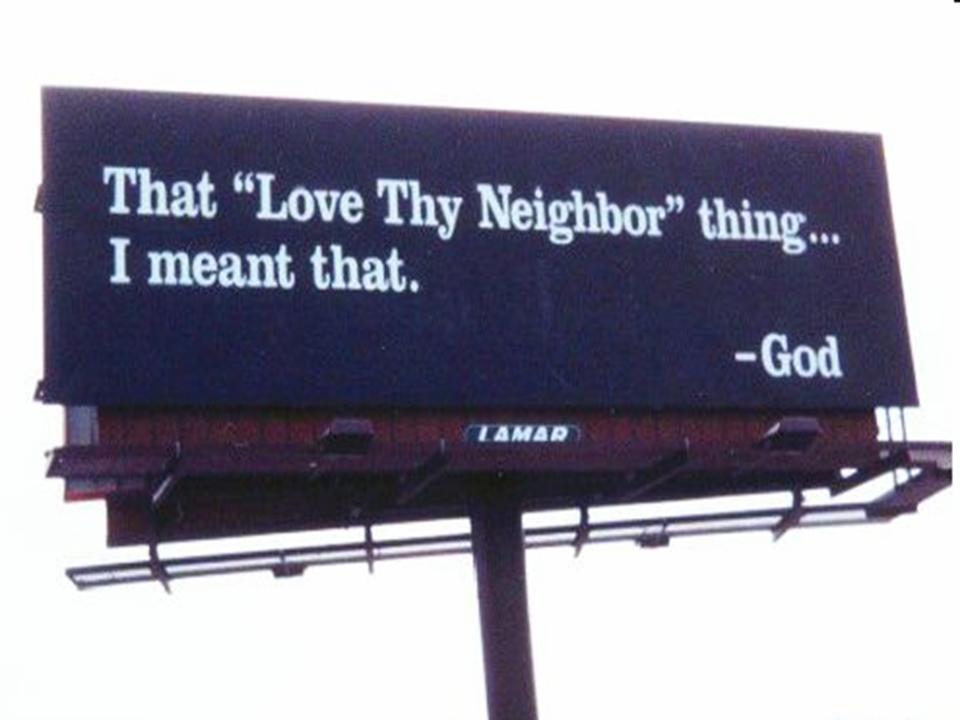The title of this blog is borrowed from Catholic Climate Covenant (catholicclimatecovenant.org). It is the theme they chose for the Feast of St. Francis this year. Given the extreme weather events we have seen during the past year and are continuing to see today as Hurricane Florence continues to devastate the Carolinas, Super Typhoon Mangkhut slams into the Philippines with winds up to 180 mph and almost daily news of forest fires destroying homes and lives in the west, it is time reflect on exactly “Who is my neighbor?” and what is my responsibility to my neighbor?
In Luke, we find the parable of the Good Samaritan in which Jesus asks after telling the parable, “Who is the neighbor in this story?” We have all probably read or heard that parable multiple times in our lives and agreed that the Samaritan was indeed the real neighbor. However, because Jesus used images from his time and place the full effect of what he was telling the people often escapes our notice. Perhaps a retelling of this parable using images from our time will help us to better understand who my neighbor is.
A young man was delivering a pizza and stopped his car in front of a house and got out. While double-checking the address to be sure he was at the right place, someone came up to him, beat him and stole the pizza, his money and cell phone. Shortly after a businessman came by and saw the young man lying by the side of the road, but was in a hurry to get home for dinner so did not stop. A short time after that a clergy person passed by, but was on his way to an ecumenical prayer service and did not want to be late so he did not stop. A while later a young undocumented immigrant working at a local factory passed by and she stopped to help. She was afraid of ICE (Immigration and Customs Enforcement) and that she might be deported, but her faith was strong and she knew that helping this young man was what God required of her. Who is the neighbor in this story?
The message of the Good Samaritan was not about Samaritans being good people. It was about the fact that it is often those who are often cast aside or living on the margins who God uses to call us to faithful discipleship. Who is God using today to call you and me? Do we hear the cries of those locked in detention centers? Do we hear the screams of the children separated from their parents? Do we see the face of God in the thousands suffering and dying from hurricanes, earthquakes, typhoons, tsunamis, fires and other natural disasters? Do we recognize the role that climate change plays in the refugee crises? Do we ever take the time to ask ourselves what role we play in global climate change?
Each of us must ask daily, “Who is my neighbor?” and how am I being called to respond to my neighbors’ needs? It really does no good to feel sorry for people if we are not moved to action. What I buy, what I eat, the waste I throw away – all has an effect on my neighbor. We have only one home, Planet Earth, and it belongs to all of us. Jesus came to show us how to live according to God’s plan. His whole life was one of giving and modeling for us what we are called to do.
Private actions, though important, are not enough. It is time to work together. Last week 4,000 climate advocates, foreign dignitaries, investors, and state and local officials gathered for a Global Climate Action Summit co-hosted by Governor Jerry Brown of California and Michael Bloomberg, the former New York mayor. “According to Brown and Bloomberg this “coalition of the willing” now represent over half the population of the United States, over half the American economy and more than a third of its nationwide greenhouse gas emissions. Despite the lack of action at the national level and policies that only add to climate change, many people recognize the dangers of continuing to ignore what is happening before their eyes and want to make a difference. What is happening in your community? How committed is your local government to making the kinds of changes that are needed to reduce the use of fossil fuels? What is your faith community saying and doing to protect God’s creation? Find like-minded people and together strategize as to what you can do to make the world a welcoming place for all.
The immigrant, the prisoner, the outcast, the other – all are my neighbors and God calls me to love them and share Earth’s bounty with them. How will I treat my neighbor today?
September 17, 2018

